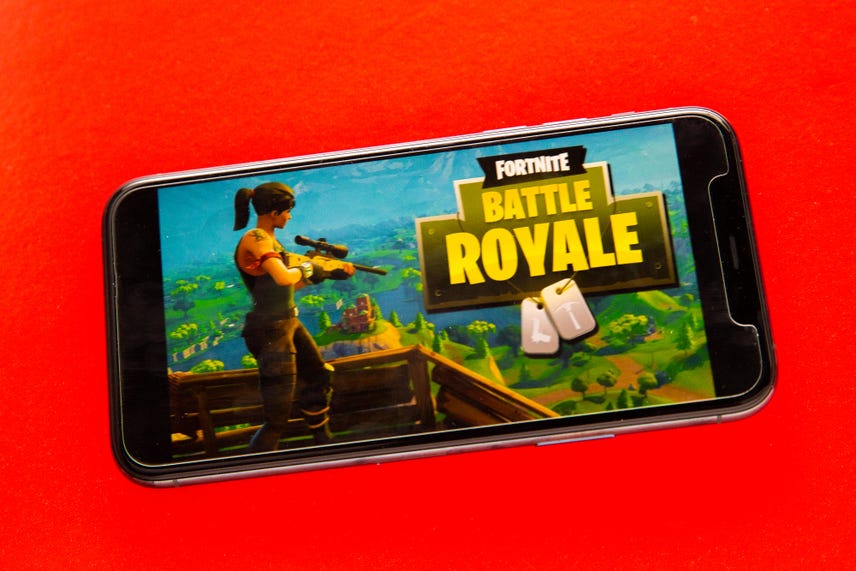
One of the biggest antitrust trials in tech is finally over.
Well, at least the courtroom part.
Epic and Apple faced off in the courtroom with the future of how app stores work at stake.
If you forgot how we We got here, i'll try to sum it up.
Last summer Epic activated a payment option within its super popular game Fortnight on the iPhone.
That payment options circumvented Apple's 30% Commission and Epic encouraged people to use it by offering them a discount, no surprise that day Apple pulled Fortnight from the App Store saying it went against the company's rules.
Epic knew that would happen of course and had an antitrust lawsuit and a massive PR campaign ready to launch the second fortnight was yanked and hashtag free fortnight was trending on Twitter shortly after.
The official trial kicked off at the beginning of May and it came with all the excitement and fireworks you'd expect from an antitrust suit.
Not pretty much was a very by the books trial with no shenanigans, which means it was pretty bone dry for you and me.
But the outcome could change the way we use our phones, even if you're on Android Did I mention epic pulled the same move with Google and was kicked out of its store to throughout the trial, Apple positioned itself as a benevolent tech giant, lovingly protecting its customers.
From evil ne'er do wells by walling in the garden of iOS locking developers into a safer utopian ecosystem.
Epic said that's a crock and positioned itself as tiny little David in a fight against Goliath.
Accompany fighting not only for itself, but for every developer forced to exist under the rule and powerful thumb of apple in order to survive in the world of mobile app development.
Of course, neither of those depictions are totally accurate.
Epic itself is so large.
The fight was really more Goliath versus Godzilla.
And Apple's tight grip on iOS and App Store commission brings in a tonne of nickels and dimes in revenue.
Still, each company hopes to use these stories to influence the outcome of the case.
And that outcome rests with United States District Judge Yvonne Gonzalez Rogers.
This was a bench trial.
So there wasn't a jury to hear arguments but the judge was able to ask pointed questions to witnesses and both of the legal teams so we We did get a little glimpse into her thought process as the trial progressed.
She spoke about her pending decision at the end of the trial and there were some hints that she was seeking compromises by both parties.
So it's unlikely we'll see Apple or Epic come out of this with A total win.
But based on the testimony and the questions posed by the judge, here are a few possible outcomes and how they would affect consumers.
First one, the judge decides Apple should allow third party app stores on iOS Either for all developers or specifically for epic.
This would be a huge win for epic either way, as it would launch some version of the epic game store on iOS and shut out apple in customer transactions.
If the judge opened it up to all developers, customers would see more third party app stores available to download with their problem sets of rules.
Very similar to the Google Play Store, as well as digital goods and products for purchase outside of Apple's closed infinite loop of app reviews and approvals and denials.
Second one is the judge says this is all working as intended.
And let's things continue the way they've been working since the App Store launched.
Apple argued repeatedly that the App Store is a critical function of the iOS ecosystem, and that it should be allowed to control it as part of the iOS that powers iPhones and iPad.
Epic would go home empty handed and would have to figure out if it wants to remove epic pay from fortnight on the app store in order to get it back into the hands of eager fortnight iOS gamers.
One more potential outcome.
The judge rules Apple has to let developers include and Advertise External links to purchase digital goods and content on the web.
This also would circumvent the 30% Commission if a customer chooses to jump through a couple of extra hoops to potentially pay less for content outside the app stores walls.
He would maintain a singular app store the way Apple operates it today, but it would also give developers a way to allow for consumer choice, and potentially pass along savings to those customers.
Apple would still be unhappy with that though, since it argued in court that a move like this would be Similar to putting up a billboard outside of a Best Buy that said, buy your iPhone at your local Apple Store instead and get a special discount.
There's also the possibility the judge makes an even narrower decision with lots of different caveats and specifications.
And I think there's about a 150% chance at least one side ends up appealing the decision in the hopes of a more favorable outcome.
It might be a month or two or even three until the judge drops her decision.
Whatever it ends up being one thing is crystal clear.
This whole thing is far from over.
And we'll be bringing you updates on cnet.com I'm Ashley Skylar.
Be good humans.